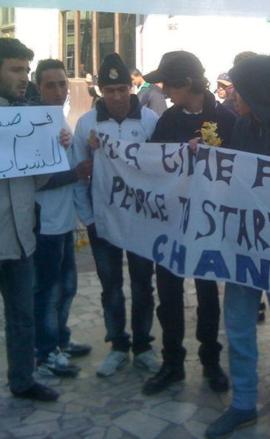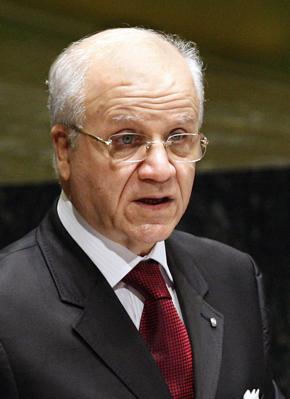|
Algeria Politics Algeria govt seeks to avoid mass protests
On Saturday, the first day of the announced mass protests in Algeria kicked off, defying a government ban to marches in the streets of Algiers. Up to 3,000 protesters managed to overcome police barricades and enter the capital's May First Square. On Sunday, even greater masses were seen protesting in Algiers.
The most annoying factor for ordinary Algerians wanting more freedom has been the 19-year-old state of emergency, allowing government and the armed forces to disregard some basic human rights and to legitimise their abuse of power. Already before this weekend's protests, President Bouteflika said he had ordered government to seek to lift the emergency as soon as possible, finding "another judiciary basis" for the continued fight against terrorism. Today, Algerian Foreign Minister Mourad Medelci could announce that the emergency laws would be lifted "within days". This would remove the most unpopular means of state repression and inevitably lead to greater freedoms for Algerians. President Bouteflika, already following the unrest in Tunisia, was quick to subsidise basic food staples to avoid social unrest. He has also ordered government to develop new plans to further reduce youth unemployment and increase social spending. According to Algerian press reports, there may be plans for bolder reforms and a complete change of government, reportedly to be announced within short. These remedies could not save President Mubarak. But could they save the Algerian regime? The protests are still small, with Saturday's protesters in Algiers being largely outnumbered by police forces, but organisers have called for marches to be organised each Saturday from now on. And they could grow. But in Algiers, the protesters are divided. Major parts of the protesters belonged to the country's two old opposition movements, which stood at opposite sides in the civil war. The disillusioned youth - which had led protests in Tunisia and Egypt and dominated in the Annaba and Constantine protests - does not want to be led by these "old opposition" forces. So far, Foreign Minister Medelci is right when saying that the protests represent "minority movements" and that "Algeria is not Tunisia, Algeria is not Egypt." But as the Bouteflika regime is far from popular, Algeria could indeed follow the path of Tunisia and Egypt if bolder reforms are not presented and if the disillusioned groups are given a way to directly influence these reforms. By staff writers © afrol News - Create an e-mail alert for Algeria news - Create an e-mail alert for Politics news
On the Afrol News front page now
|
front page
| news
| countries
| archive
| currencies
| news alerts login
| about afrol News
| contact
| advertise
| español
©
afrol News.
Reproducing or buying afrol News' articles.
You can contact us at mail@afrol.com









